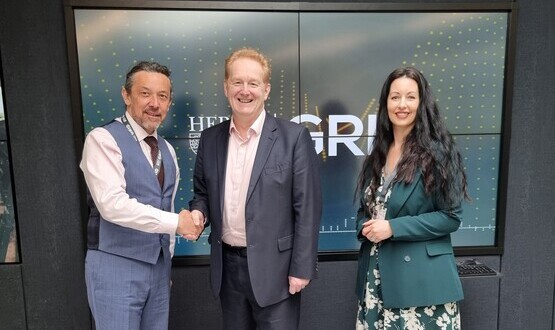Scotland connects ambulances to satellites for better pre-hospital care
- 11 December 2017

Ambulances in rural Scotland will be equipped with satellite-connected video and ultrasound capabilities that will allow paramedics to beam high-resolution images to hospitals while patients are in transit.
The pilot programme is being run by NHS Highland and the Scottish Ambulance Service and is designed to help paramedics provide better treatment to critical patients during long ambulance journeys.
SatCare takes diagnostic tools usually confined to emergency departments and incorporates them into ambulances, making them available at the site of an emergency. Paramedics are able to perform scans and record a video summary of a patient’s condition, and then send it to the hospital’s A&E department ahead of arrival.
This means that medical experts can pre-emptively assess the patient’s needs, provide medical advice to the paramedics and prepare for the patient’s arrival by mobilizing necessary medical resources.
The SatCare trial will run for a year, and is being partly funded by the European Space Agency. Five ambulances will be equipped with the technology and will target approximately 1,000 patients living in remote regions of Scotland.
[themify_box icon=”info” color=”gray”]
Scotland deploys connected ambulances in SatCare trial
· Paramedics can send scans and video of patients to hospitals ahead of arrival
· Hospital staff assess symptoms and provide advice to first responders
· Solution will be used for patients living far away from hospitals
· Technology is underpinned by ViaSat’s high-throughput satellite network
· SatCare will be trialled for a year with around 1,000 patients
[/themify_box]

The system will be used in situations where a patient’s symptoms need to be diagnosed quickly, including major trauma, chest pain, shortness of breath, abdominal pain and circulatory shock, all of which benefit from more accurate early diagnosis.
Dr Luke Regan, emergency consultant at Raigmore Hospital, said: “Point-of-care ultrasound, telemedicine and remote decision support have all offered potential over the years to improve care for our patients, but have often failed to secure the kinds of rigorous and substantial research platforms that allow firm conclusions to be made about efficacy.
“The SatCare trial aims for the numbers, methodological rigour and rural patient base to offer a real prospect of informing the debate on these interventions positively for years to come.”
SatCare hinges on ViaSat’s KA-SAT satellite broadband network – which it jointly owns with French satellite operation Eutelsat – and is part-funded by the European Space Agency.
Because the technology is easy to install and use, it can be used by first responders who may not possess extensive sonography training.
Dr Leila Eadie, research fellow at the University of Aberdeen’s Centre for Rural Health, said: “Previous studies have shown the biggest barrier to practical use of pre-hospital ultrasound is interpretation of the scans: images can be acquired with basic training and SatCare communications technology will facilitate expert assessment of images in the field.”




